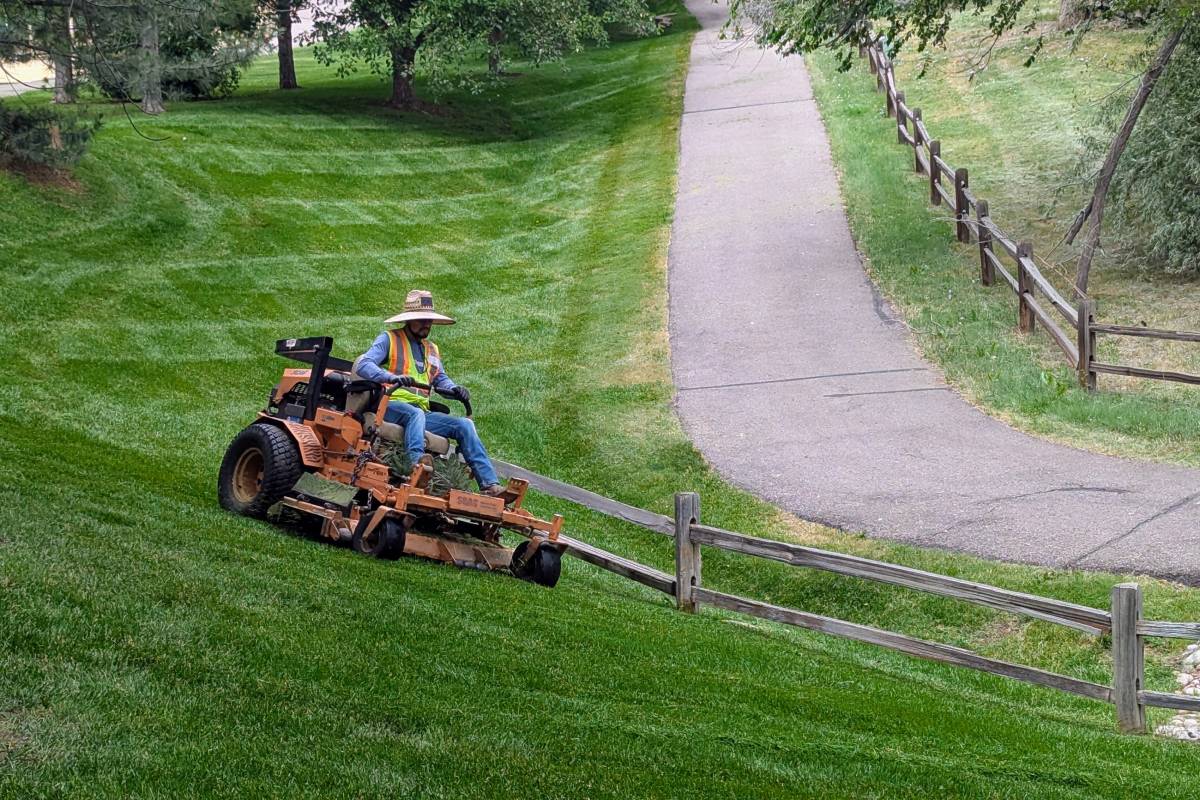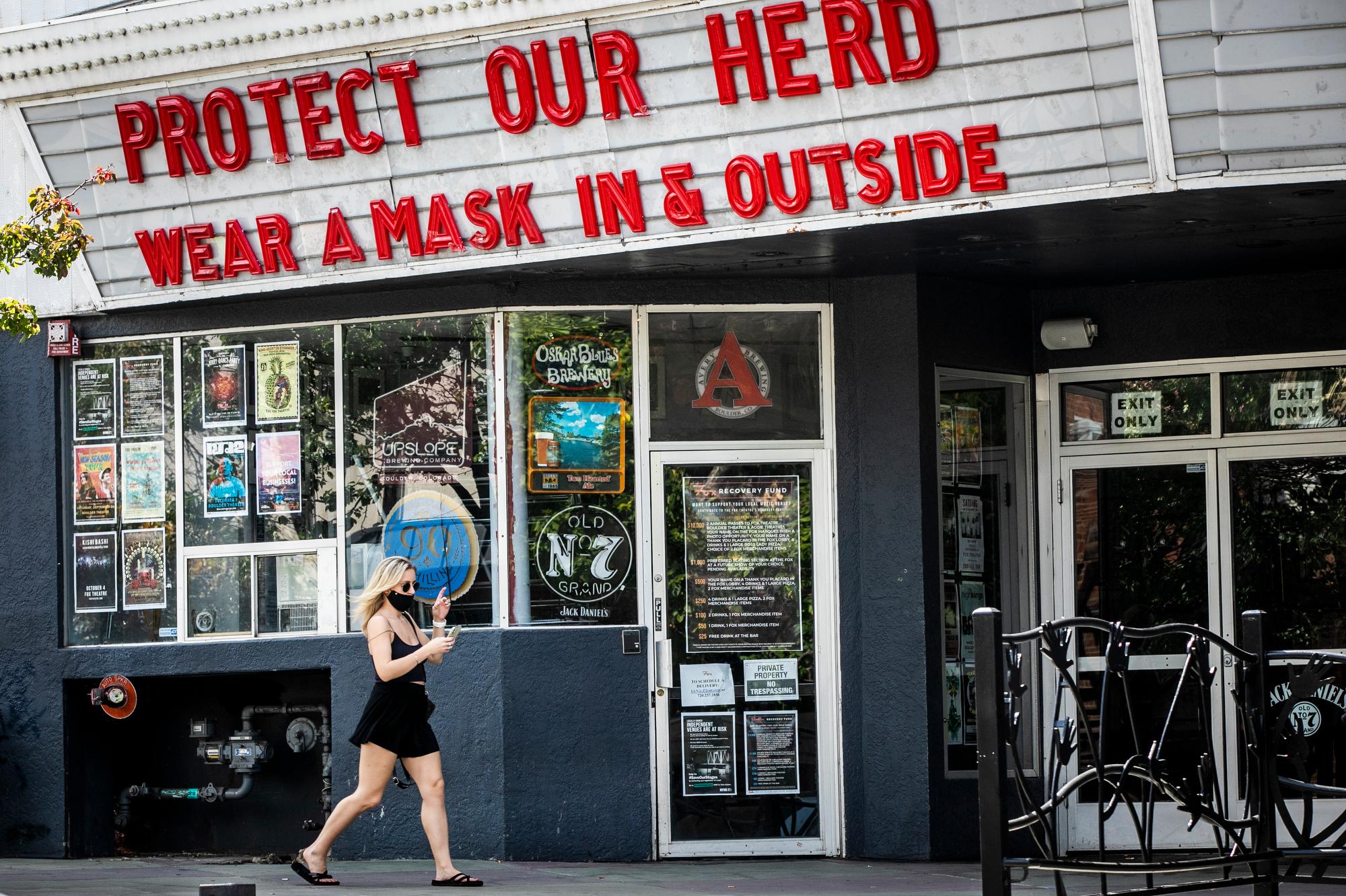
Update: Sept. 24 at 10 a.m., Boulder County Public Health issued an order that prohibits gatherings of people ages 18 to 22 and puts in place a stay-at-home mandate for anyone living at 36 properties near the University of Colorado Boulder campus.
Tuesday looked like a regular day at University of Colorado Boulder.
Students were eating with friends outside the cafeteria, volunteers were staffing a voter registration booth and freshmen were playing an impromptu game of football outside their dorm.
The masks that most people were wearing was the only sign of an ongoing global pandemic.
However, it wasn’t a normal day. It was the final day of in-person classes for at least two weeks as university leaders attempt to slow the rapid rise in COVID-19 infections within the community. It’s the most extreme action the CU administration has taken since fall classes began one month ago. At the time of the announcement, CU had confirmed 765 cases since the semester began.
The Colorado Department of Public Health and Environment reported Wednesday that 1,198 people had been infected in what they call the "CU Community Outbreak."
For many, the shift to remote learning, albeit temporary, was a frustrating inevitability.
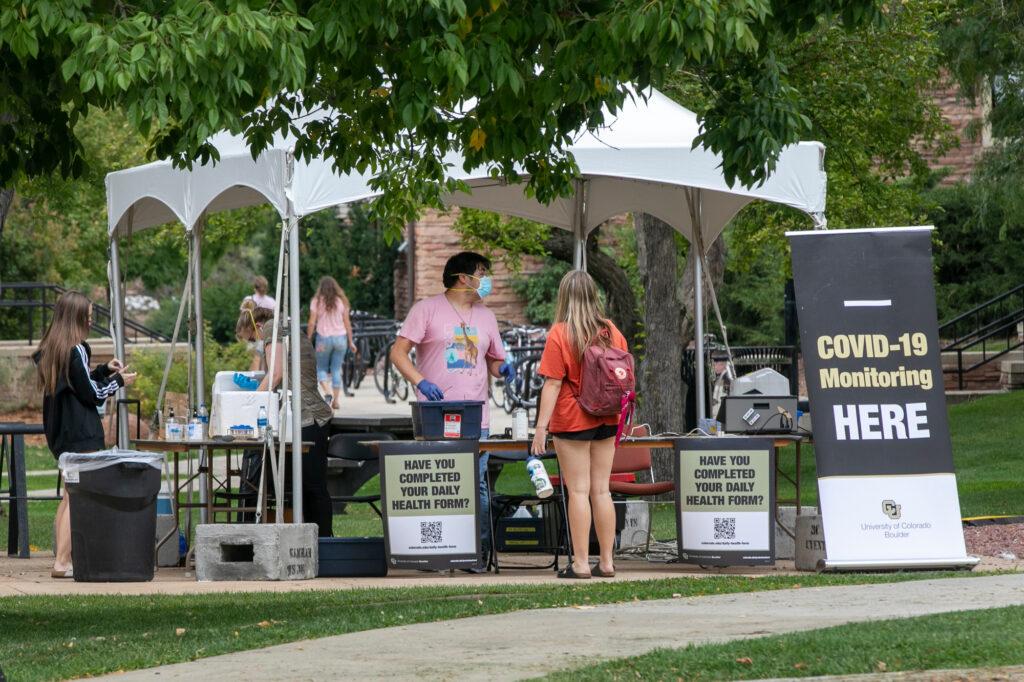
Computer science student Andrew Scott, a Fort Collins native, said he would have stayed at home if he didn’t have in-person classes this semester.
He was not surprised by the announcement.
“This isn't a unique problem," Scott said. “It's just a when and a how at all colleges. And CU does have some real issues with it. They could have mitigated. There were parties, big parties the first week that nobody did anything about.”
At a press conference this week, CU Provost Russell Moore blamed a “small minority of students” attending parties and ignoring health protocols for forcing the university to move remote. He stressed that a vast majority of students follow the rules.
Morgan Borges said she’s one of those rule-followers. She said the most important thing to her is to stay on-campus so she can experience a somewhat normal freshman year. She said people ignoring health guidelines in order to socialize frustrate her.
“It's kind of crazy how they don't think about their actions and how it was going to affect others and what the consequences are,” Borges said. “And it makes you wonder, do these students really want to stay on campus or do they just want to party?”
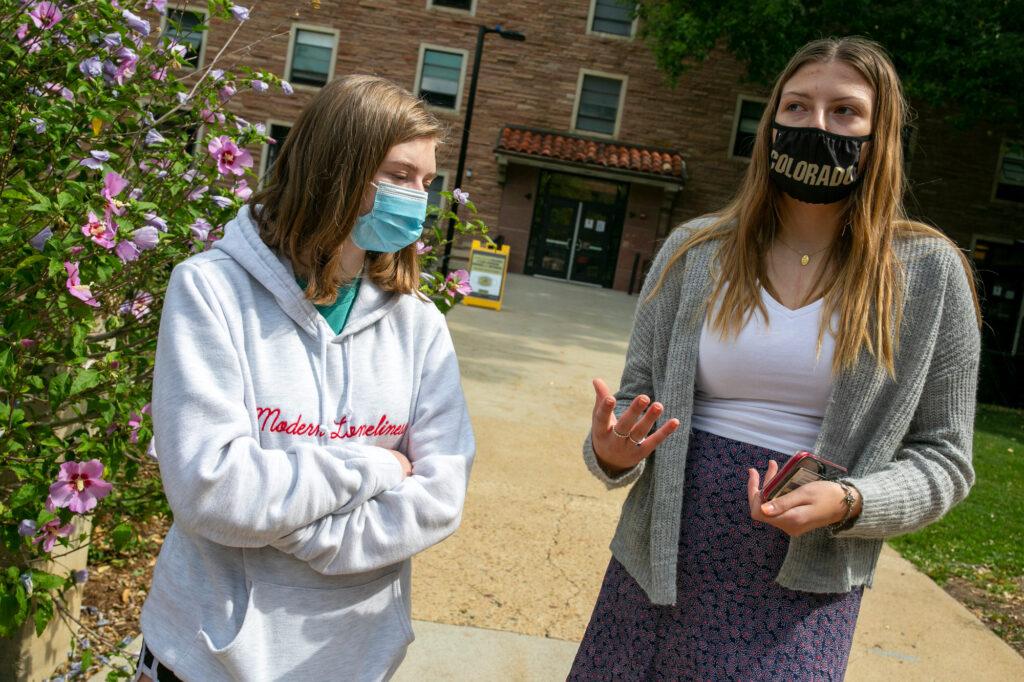
According to CU’s COVID dashboard, more than 300 students have been disciplined since the semester began. Those actions range from requiring students to take a short class on health guidelines to temporary suspensions. On top of that, some fraternity houses have been fined after throwing parties.
For faculty and staff, the situation is different. They’re outsiders looking in at the student microcosm of CU. Many of them said young college students shouldn’t be the ones who have to shoulder this responsibility.
“I think that the blame ultimately lies on the administration, making the decision to bring students back during this time,” said Tracy Ferrell, a professor teaching writing and rhetoric. “Not on these kids who are going to do what kids do at that age — which is — want to be around other people their age.”
Some members of the faculty believe moving remote is the bare minimum. Dani Soibelman, a PhD student and teaching assistant, said CU administrators have to take more steps to ensure the entire community stays safe.
- Boulder County Calls For CU Students To Quarantine For Two Weeks As Coronavirus Cases Rise
- Colorado’s Coronavirus Numbers Tick Up, Driven By Colleges Reopening
- CU Boulder Reports Dozens Of New Coronavirus Cases Days After Wastewater Detected Possible Outbreaks
- CU Boulder Detects Possible Coronavirus Outbreaks At Four Dorms Thanks To Wastewater Testing
- Colorado Health Officials Will Use Poop To Track The Spread Of Coronavirus
One step she proposed would be allowing professors to decide if their classes return after the two-week period.
“They often defer to epidemiologists and say, ‘I'm not an epidemiologist, but ours say X, Y, and Z’, except we don't get to hear from them,” Soibelman said. “I think it is very infantilizing and humiliating to have a group of administrators imply through their lack of transparency that we're unable to make safe decisions on behalf of ourselves when they don't have the lived experience of everything we've been going through.”
Soibelman also expressed concern about the wider Boulder community. CU said a vast majority of infection occurs off-campus. Boulder public health officials said over 70 percent of cases in the county are being traced back to local students. She said it’s important that the university takes responsibility for spread off-campus too.
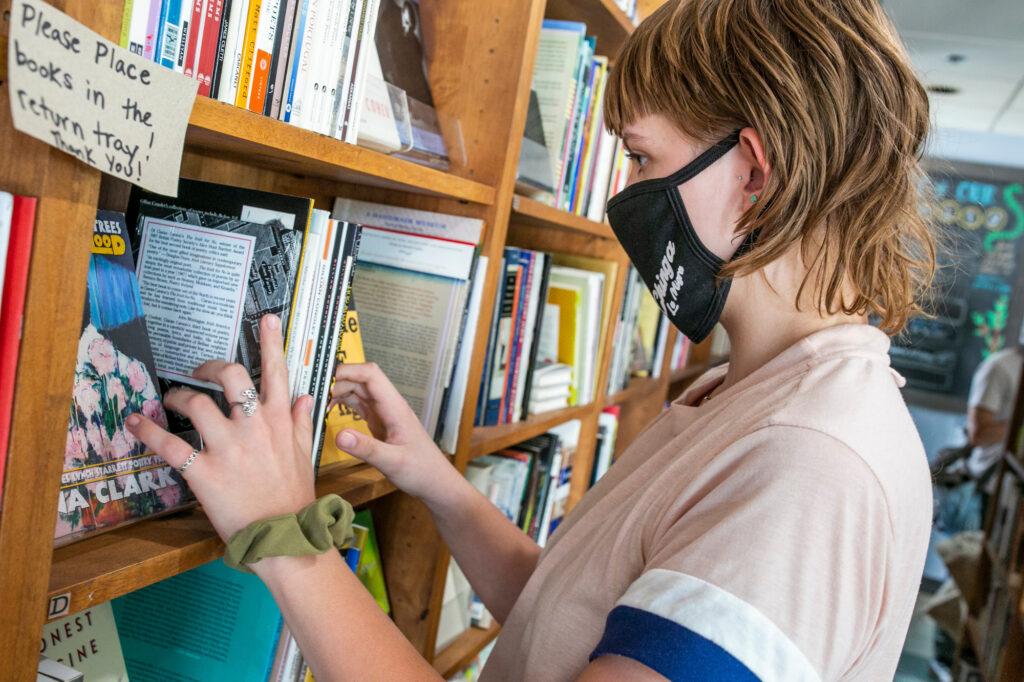
Chloe Halvorson is the manager of Innisfree Poetry Bookstore & Cafe, a popular spot in the middle of the Hill, a booming commercial district across from campus. During the summer, she said the area was a ghost town. But now, with students back for the new semester, she’s struggled to get customers to comply with health guidelines.
“We'll get huge crowds of 10 or so people,” Halvorson said. “You know that they don't live together. You know that they don't share a household. It's a little disheartening, you know?”
Even with classes going remote, Halvorson doesn’t expect things to slow down. For better or for worse, students are back in Boulder and there to stay. She said it’s up to everyone in the community — students, staff, business owners, residents, and most importantly, the people in power — to adjust.
“Every single one of us is going to need to adapt really significantly, to be able to create a sustainable future for all of us moving forward,” Halvorson said. “And that future is cooperation and accountability. And I really hope that that gets to be seen.”



